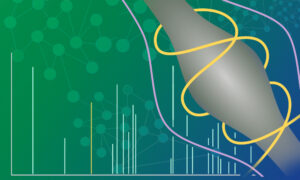
Read the latest Issue
Virtual EMBL Conference explores how our response to SARS-CoV-2 could mark the beginning of a new era in infection research

On 3 July, over 600 participants on four continents came together for the virtual EMBL Conference ‘SARS-CoV-2: Towards a New Era in Infection Research’. Within a few weeks, the organisers succeeded in putting together a day-long conference that featured scientific talks from world-renowned experts in fields such as microbial pathogenesis; cellular, structural, and systems biology; drug discovery; bioinformatics; and epidemiology. The speakers highlighted the importance of fundamental research, collaboration, and data science in containing the SARS-CoV-2 pandemic, and discussed opportunities to improve our response to epidemics and pandemics in the future.
The first two conference sessions revolved around fundamental research on SARS-CoV-2 and other viruses, as a prerequisite for drug discovery and vaccine development. Many presentations featured results from EMBL scientists. Studying the structure of viral proteins, their interactions with the host cell, and the changes in host cellular biology that occur upon infection can lead to the identification of new drug targets. Professor Nevan Krogan, Director of the Quantitative Biosciences Institute at the University of California San Francisco, presented promising research carried out in collaboration with the Beltrao group at EMBL’s European Bioinformatics Institute (EMBL-EBI) and a number of labs across the globe. By analysing how SARS-CoV-2 rewires the protein interaction networks and signalling pathways of infected host cells, the researchers identified existing drugs that are known to target the affected host proteins, and will now try to repurpose them to slow down entry, replication, or survival of the virus, ultimately reducing its ability to cause infection.
A recurring theme was the importance of collaboration in finding solutions to COVID-19. “It’s obviously been a tragedy, this pandemic, but the silver lining for me was to see how fast we can move when we all work together,” said Krogan. “In this case, you can see that siloes are broken down across different laboratories, across different institutions, between academics and pharmaceutical companies. And you can see how fast we can move. And the challenge I think for us as scientists is to keep this infrastructure in place, keep this spirit in place when the dust settles on COVID-19 so we are more prepared for the next pandemic.”
The third session focused on epidemiological data gathered on the pandemic in Germany, France, and the Netherlands, and explored how data science can aid our fight against COVID-19. The broad utility of the newly launched COVID-19 Data Portal by EMBL-EBI was evident in several of the talks. A major challenge in controlling pandemics is identifying clusters of infections and interrupting infection chains. For SARS-CoV-2, this is hindered because virus replication in the upper respiratory tract is already slowing down and patients have surpassed maximum infectivity by the time they develop symptoms and disease is diagnosed. Professor Christian Drosten, Deputy Coordinator Emerging Infections at the German Center for Infection Research and Director of Charité – Universitätsmedizin Berlin, explained that delays between testing and receiving test results may mean that individuals are less infectious by the time they receive a positive result and are put in quarantine. He stressed the importance of contact tracing to detect potential infection clusters, explaining that identifying and immediately isolating these clusters is essential to maintain low incidence rates in countries that have eased restrictions.
An innovative digital solution for controlling pandemics was presented by Professor Gérard Krause, Head of Epidemiology at the Helmholtz Centre for Infection Research in Braunschweig, Germany. The Digital Surveillance Outbreak Response Management and Analysis System (SORMAS) is a data collection and exchange tool that combines various functions, from early warning and analysis to response management and clinical management. SORMAS was developed to control Ebola outbreaks in Nigeria and Ghana in 2015–16, and was quickly adapted in the past few months for COVID-19. The tool allows remote data input by healthcare professionals, collects and analyses all data centrally, and allows remote access and visualisation of infection data. It is now being implemented in several countries in response to COVID-19, including Germany, France, and Switzerland. In the future, it can be used for any emerging pathogen.
In the final session, the speakers explored current limitations in our understanding of key pathogens and their interactions with their hosts. Genetic factors, pre-existing illnesses, and differences in the types of microbes that live within us – our microbiomes – are believed to affect the progress of infections, but we have only started to explore their contributions. A focal area was the development of antimicrobial resistance, which was a serious public health problem before COVID-19 and may be further aggravated by current therapy regimes during the pandemic. The speakers also discussed lessons learned from drug discovery against other prominent pathogens, like the bacterium causing tuberculosis, and complications that can arise in the treatment of vector-borne diseases, like malaria.
From these talks, and the panel discussion that followed, a clear message emerged: there is an urgent need to better understand microbes and viruses, and their interactions with their host organisms and with their natural surroundings. Interdisciplinary research and the development of novel tools are required to study a broad range of pathogens, to improve our abilities to detect and trace infections, and to develop new drugs and vaccines.
The panellists also explored what we can do better to prepare for future pandemics. It’s difficult to anticipate what will happen, so building up capacity and funding for fundamental research is of paramount importance. For the pharmaceutical industry, the challenges could best be met by establishing new technology platforms and scaling up production capacity. Despite the current urgency in fighting COVID-19, participants stressed that we should not neglect other pressing issues, such as the development of antimicrobial resistance and the effect of climate change on biodiversity and ecosystems.
The speakers expressed hope that the scientific community would learn from our response to the current pandemic, maintain positive developments, and not repeat previous mistakes. “With the last two coronavirus epidemics, they were obviously much smaller versions of this, and there was a lot of interest and people rushing in, and then they all rushed out,” said Professor Susan Weiss of the University of Pennsylvania in Philadelphia, who has been studying coronaviruses for 40 years. “I hope that doesn’t happen this time, I hope that we are really learning a lesson, not just for coronavirus but all these other possible pathogens as well, and we don’t just play that game, that story again, but really take it seriously.”
Looking for past print editions of EMBLetc.? Browse our archive, going back 20 years.
EMBLetc. archive